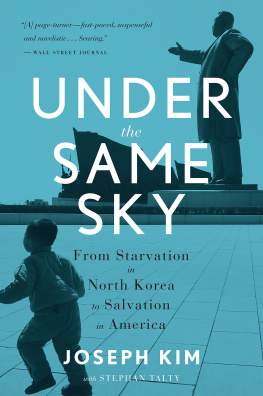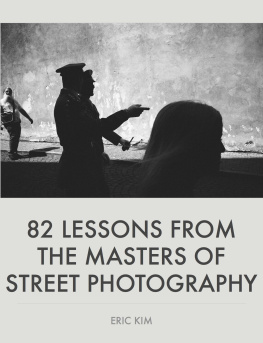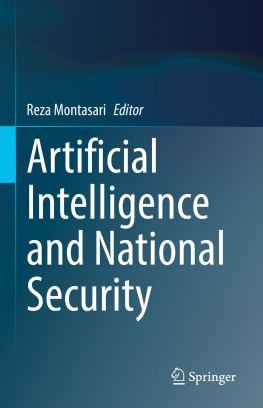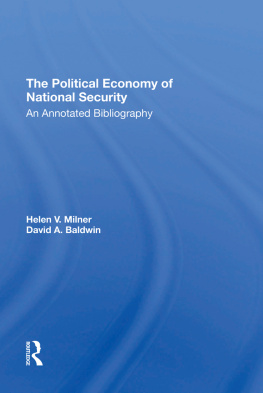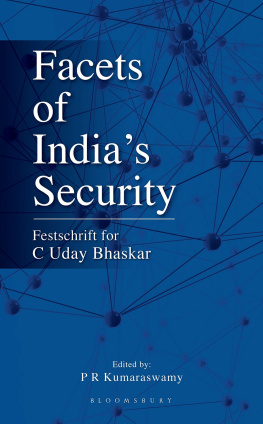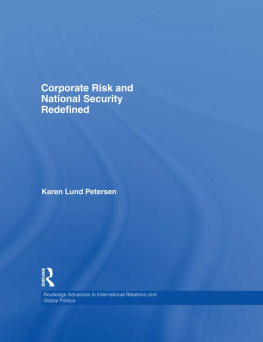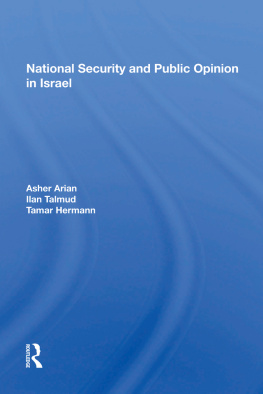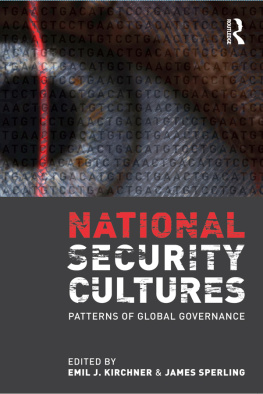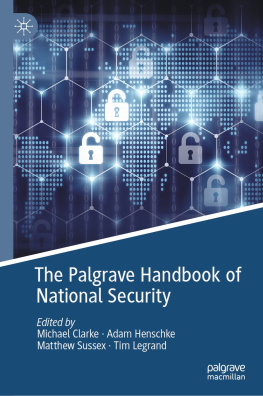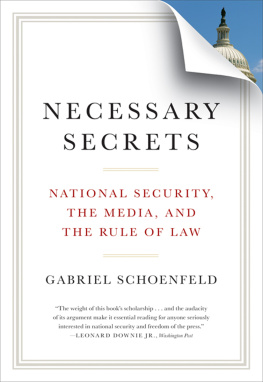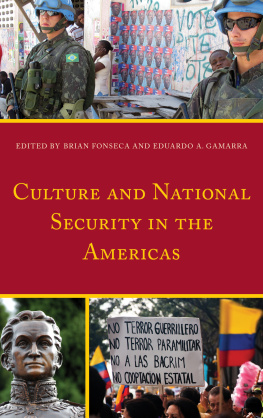
Social Media and South Korean National Security
Yongho Kim

McFarland & Company, Inc., Publishers
Jefferson, North Carolina
LIBRARY OF CONGRESS CATALOGUING DATA ARE AVAILABLE
BRITISH LIBRARY CATALOGUING DATA ARE AVAILABLE
e-ISBN: 978-1-4766-2863-9
2017 Yongho Kim. All rights reserved
No part of this book may be reproduced or transmitted in any form or by any means, electronic or mechanical, including photocopying or recording, or by any information storage and retrieval system, without permission in writing from the publisher.
Front cover images 2017 iStock
McFarland & Company, Inc., Publishers
Box 611, Jefferson, North Carolina 28640
www.mcfarlandpub.com
Preface
When I published my earlier book, National Security, the Media and the National Assembly, in Korean in 1999, I focused on the interaction between the media and the government, with the National Assembly, South Koreas unicameral parliamentary body, as an intervening variable. At that time, public opinion had not yet exerted significant influence on the interaction between the media and national security, although democratization increased citizen involvement in other areas of public policy regarding taxation, consumer price, housing, labor and employment. National security attracted little attention because it did not affect peoples pockets compared with other issues. It was the intensified interKorean cooperation initiated by Kim Dae-jungs sunshine policy in the late 1990s that triggered public attention on issues regarding North Korea and national security. Then, antiAmericanism became a hotly debated issue in the presidential election in 2002, which led me to open an undergraduate course on this subject. I witnessed competition between TV news and newspapers over the framing of national security issues and saw the impact of social media in providing a conduit for individual voices.
In writing this volume, I have benefited from my personal experience as the specialist reporter on unification affairs at Joongang Daily in Seoul, Korea. My personal friendships with my former colleagues kept me informed of new developments within the news-making industry and provided various chances to exchange views on the role of social media. My experience as a commentator for the Korea Broadcasting Station (KBS) and TV Chosun also provided me with valuable opportunities to witness what was actually going on within the media-policy link inside the evolving environment of emerging cable news networks and social media. I am grateful for all these opportunities.
As a person specializing in international relations, I have research interests that are rather slanted toward national security, rather than toward journalism and media studies. For me, it was not easy to find a book on this subject with a balanced view between civil rights and national security. I was lucky to find Rahul Sagars Secrets and Leaks: The Dilemma of State Secrecy and Darren Daviss Negative Liberty: Public Opinion and the Terrorist Attacks on America, both of which enlightened me to develop a balanced view between national security and civil rights. I am heavily indebted to the authors for their informative and theoretical analysis.
I have to mention my research assistants. I wish to express my gratitude to Dr. Jaeyoung Hur, who had been the principal research assistant for this project. I am pleased that he now teaches at Yonsei. But for his support and help, I would not have completed this volume. I also wish to thank Yeongjun Choi, Narae Yim, Jiseon Hwang, Seyoung Jung, Sohee Hwang, Nagyon Kim and Hwanbi Lee for providing valuable assistance. Professor Lonnie Edge also provided indispensable editorial support for making my manuscript more readable.
Financially, the National Research Foundation of Korea provided the main support for this research. This work was supported by the National Research Foundation of Korea grant, funded by the Korean government (NRF-2012S1A5A2A01014411). This research was also partially supported by the Yonsei University Research Fund. I deeply appreciate their sincerity and patience in supporting this project.
Lastly, I want to express my deepest gratitude to my late father, who provided me valuable insights on South Koreas national security by telling me stories about his personal experiences holding various governmental posts. I also wish to thank my mother, who has always been my sincere supporter. I just wish she could know how much I respect and love her. I also thank my wife and son, who always give me joy and happiness. My life owes a great deal to all of them.
Introduction
The book probes the influence of social media on national security. Some argue that social media influence the making of security policy in an unprecedented way, exerting a critical impact. In addition, I seek to explain how variables on different levels of analysis are introduced into security policymaking, how trade-offs between security and civil liberties are affected and how messages and news stories distributed through social media differ from those reported by traditional media outlets such as newspapers and TV news. In doing so, I will focus on their impact on South Koreas policy toward North Korean provocations such as missile and nuclear tests, interKorean relations and the Souths alliance with the United States.
Not a few have pondered the issue of media influence on national security, an area where domestic cohesion is required. Security used to be an area where citizenship was often defined in terms of us against them, with a clear frame of what could be discussed and what could not. It has been argued that social media emerged as the third actor in government-media interaction, and subsequently that the status of newspaper and TV news as a common civic space is eroding.
It is apparent that social media is gradually transforming the symbiosis between traditional media outlets and the government, with social media serving as a shortcut to information and heuristic cues. Citizens gradually base their opinions on an often inaccurate representation of what social media says about national security and North Korea. The credibility of media messages depends on their sources, such as newspapers, TV news, the internet and social media, as well as the context the messages are delivered in.
Quite often, there is inconsistency between government announcements and social media descriptions of specific security events. Opinions and rhetoric expressed in social media compete with official government announcements, thereby creating situations in which the citizenry debate, choose sides and make social-media-manufactured truth more credible than information released by the government. Sometimes, social media over-represents negative and critical coverage of security.
This book introduces social media in national security as the third actor in media-government relations through analyzing several of the cases mentioned above. Doing so illuminates media influence in ideological conflicts involving antiAmericanism, unification and North Koreas provocations. Social media plays an important role by influencing ideological differences about national security that distinguish young and old, haves and have-nots, proAmerican and antiAmerican feeling, security and nationalism, and, finally, proNorth Korea and antiNorth Korea sentiment.
This volume first introduces and develops theoretical debates over the correlation between the media and national security. In particular, this volume focuses on such issues as conflict between civil liberties and censorship relating to security, the effect of frames or framing on intentional and unintentional distortion, and the consequent media contribution to ideological debates in South Korean society.
Next page

